-
 Bitcoin
Bitcoin $105,193.1513
0.29% -
 Ethereum
Ethereum $2,605.3069
4.98% -
 Tether USDt
Tether USDt $1.0004
0.01% -
 XRP
XRP $2.1920
1.86% -
 BNB
BNB $665.7035
1.78% -
 Solana
Solana $159.1640
3.46% -
 USDC
USDC $0.9998
0.00% -
 Dogecoin
Dogecoin $0.1942
2.20% -
 TRON
TRON $0.2709
0.30% -
 Cardano
Cardano $0.6920
3.63% -
 Hyperliquid
Hyperliquid $36.3870
10.91% -
 Sui
Sui $3.3138
1.26% -
 Chainlink
Chainlink $14.0491
2.36% -
 Avalanche
Avalanche $21.2050
3.62% -
 Stellar
Stellar $0.2708
2.31% -
 Bitcoin Cash
Bitcoin Cash $400.8761
-0.96% -
 Toncoin
Toncoin $3.2165
3.27% -
 UNUS SED LEO
UNUS SED LEO $8.5575
1.32% -
 Shiba Inu
Shiba Inu $0.0...01311
3.23% -
 Hedera
Hedera $0.1718
1.78% -
 Litecoin
Litecoin $89.5037
1.16% -
 Monero
Monero $358.9905
4.60% -
 Polkadot
Polkadot $4.1567
4.86% -
 Ethena USDe
Ethena USDe $1.0011
0.01% -
 Bitget Token
Bitget Token $4.7948
1.39% -
 Dai
Dai $0.9999
0.01% -
 Pepe
Pepe $0.0...01254
9.03% -
 Pi
Pi $0.6438
1.17% -
 Uniswap
Uniswap $6.3872
4.50% -
 Aave
Aave $258.1743
7.49%
Will USDT currency rise?
USDT's market price is influenced by demand and supply, arbitrage, regulations, its stability mechanisms, broader market conditions, and historical trading data.
Jan 24, 2025 at 03:30 am

Key Points:
- Factors Influencing USDT Fluctuations
- USDT's Stability Mechanisms
- Market Conditions Affecting USDT Value
- Historical Data and Analysis
Section 1: Factors Influencing USDT Fluctuations
USDT, a stablecoin pegged to the US dollar, is designed to maintain a 1:1 ratio with USD. However, certain factors can cause fluctuations in its market price:
- Demand and Supply: USDT supply is adjustable and depends on market demand. An increase in demand can drive up its price, while a decrease can lead to a decline.
- Arbitrage: Traders exploit price discrepancies between different exchanges, buying USDT on venues where it's cheaper and selling it on those where it's more expensive.
- Regulations: Government regulations and enforcement actions can impact the stability and demand for USDT.
Section 2: USDT's Stability Mechanisms
USDT implements several mechanisms to maintain peg stability:
- AMM Reserves: USDT's issuer, Tether, holds reserves of US dollars and other liquid assets equal to the circulating supply.
- Stablecoins: USDT is sometimes used to back other stablecoins, creating a network of linked assets that support each other's stability.
- Collateralized Loans: Tether lends out USDT, using collateral to secure the loans. The value of the collateral is monitored to ensure it remains sufficient to cover the loans.
Section 3: Market Conditions Affecting USDT Value
USDT's value can be influenced by broader market conditions:
- Crypto Market Volatility: USDT is often used as a safe haven during market downturns, which can drive up its demand and price.
- USD Value: Since USDT is pegged to USD, fluctuations in the value of the US dollar can impact its market price.
- Competition: The emergence of other stablecoins can increase competition for USDT, potentially affecting its dominance and market dynamics.
Section 4: Historical Data and Analysis
Historical data provides insights into USDT's price history:
- USDT has generally maintained a stable peg to USD, with deviations typically within a few cents.
- During periods of high market volatility, USDT has sometimes traded at a premium or discount to its peg, reflecting increased demand or supply imbalances.
- USDT's market capitalization has grown significantly over the years, indicating increased adoption.
FAQs:
- Is USDT a good investment? USDT is designed to be a stablecoin with low volatility, making it less suitable for short-term profit-seeking. However, its stability and liquidity make it an attractive option for storing and transacting digital assets.
- Is USDT pegged to gold? No, USDT is pegged exclusively to the US dollar at a 1:1 ratio.
- What is the best alternative to USDT? There are numerous stablecoins available, each with its own strengths and weaknesses. Some alternatives to USDT include Circle's USDC, Gemini's GUSD, and Binance USD (BUSD).
- Is USDT regulated? Tether, the issuer of USDT, operates under various regulations and compliance frameworks in different jurisdictions. However, its reserves and financial practices have been subject to scrutiny and criticism.
Disclaimer:info@kdj.com
The information provided is not trading advice. kdj.com does not assume any responsibility for any investments made based on the information provided in this article. Cryptocurrencies are highly volatile and it is highly recommended that you invest with caution after thorough research!
If you believe that the content used on this website infringes your copyright, please contact us immediately (info@kdj.com) and we will delete it promptly.
- LAUNCHCOIN Crypto Trader Turns $8,191 into $4 Million in Just 22 Days
- 2025-06-03 17:15:12
- "Gachagua and Ruto are just two sides of the same rotten coin."
- 2025-06-03 17:15:12
- An unknown crypto-whale bought 70 million tokens on 10 May
- 2025-06-03 17:10:12
- Shiba Inu (SHIB) Outperforms Memecoin Market, Maintaining Support at the $0.000015 Level
- 2025-06-03 17:10:12
- Former NBA champion Lamar Odom launches anti-addiction meme coin on the Solana blockchain
- 2025-06-03 17:05:14
- Pi Coin (PI) Price Drops 33% After Network Announces $100M Venture Capital Fund
- 2025-06-03 17:05:14
Related knowledge
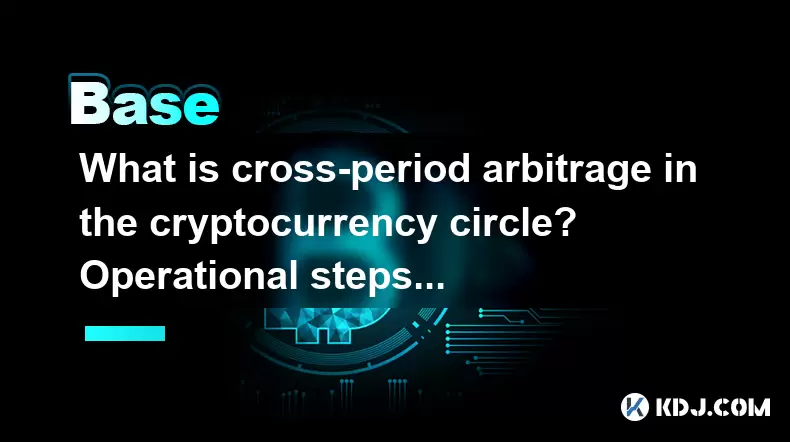
What is cross-period arbitrage in the cryptocurrency circle? Operational steps for cross-period arbitrage
May 29,2025 at 01:14am
What is Cross-Period Arbitrage in the Cryptocurrency Circle? Cross-period arbitrage in the cryptocurrency circle refers to the practice of exploiting price differences of the same asset across different time periods. This strategy involves buying an asset at a lower price in one period and selling it at a higher price in another period. The concept is r...
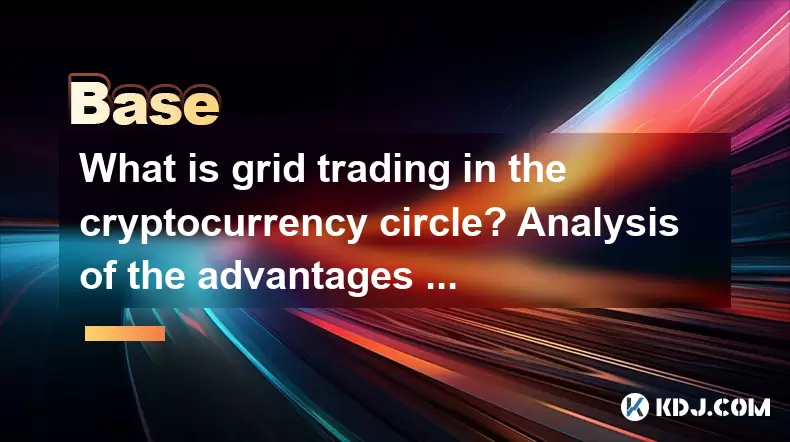
What is grid trading in the cryptocurrency circle? Analysis of the advantages and disadvantages of grid strategies
May 28,2025 at 03:07pm
Grid trading in the cryptocurrency circle refers to an automated trading strategy where a trader sets up a series of buy and sell orders at predetermined price levels. This creates a 'grid' of orders that automatically execute as the market price moves within the defined range. The primary goal of grid trading is to profit from the market's volatility b...
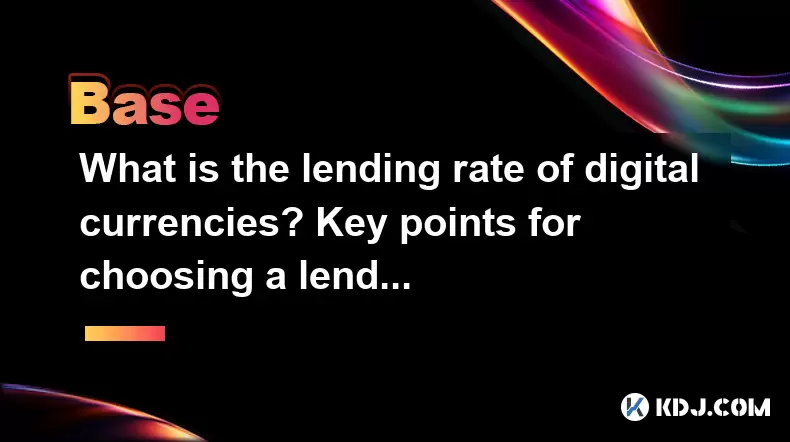
What is the lending rate of digital currencies? Key points for choosing a lending platform
Jun 02,2025 at 03:56pm
The concept of lending rates in the context of digital currencies is an integral part of the broader cryptocurrency ecosystem. Lending rates refer to the interest rates that borrowers pay to lenders when they borrow digital currencies. These rates can vary widely based on several factors including the platform used, the type of cryptocurrency being lent...
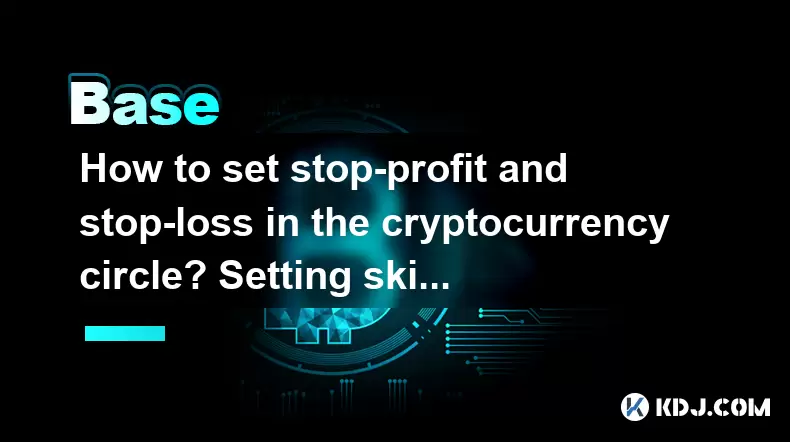
How to set stop-profit and stop-loss in the cryptocurrency circle? Setting skills and common misunderstandings
May 28,2025 at 11:28am
Setting stop-profit and stop-loss orders is a crucial strategy for managing risk and maximizing returns in the volatile world of cryptocurrencies. These tools help traders secure profits and limit losses by automatically executing trades when certain price levels are reached. However, understanding how to set these orders effectively and avoiding common...
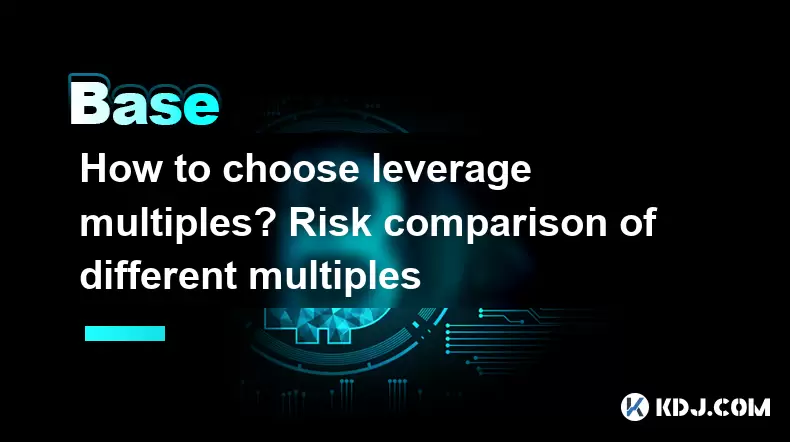
How to choose leverage multiples? Risk comparison of different multiples
May 30,2025 at 09:15am
Choosing the right leverage multiple is a critical decision for any cryptocurrency trader. Leverage can amplify both gains and losses, making it essential to understand the risks and benefits associated with different multiples. Leverage, in the context of cryptocurrency trading, refers to borrowing funds to increase the potential return on an investmen...

What is liquidity mining in the cryptocurrency circle? Precautions for participating in mining
May 29,2025 at 01:56am
Liquidity mining has become a buzzword within the cryptocurrency circle, attracting numerous enthusiasts and investors looking to leverage this opportunity. Liquidity mining refers to the process where users provide liquidity to a decentralized exchange (DEX) or a lending protocol and, in return, receive rewards, often in the form of the platform's nati...

What is cross-period arbitrage in the cryptocurrency circle? Operational steps for cross-period arbitrage
May 29,2025 at 01:14am
What is Cross-Period Arbitrage in the Cryptocurrency Circle? Cross-period arbitrage in the cryptocurrency circle refers to the practice of exploiting price differences of the same asset across different time periods. This strategy involves buying an asset at a lower price in one period and selling it at a higher price in another period. The concept is r...

What is grid trading in the cryptocurrency circle? Analysis of the advantages and disadvantages of grid strategies
May 28,2025 at 03:07pm
Grid trading in the cryptocurrency circle refers to an automated trading strategy where a trader sets up a series of buy and sell orders at predetermined price levels. This creates a 'grid' of orders that automatically execute as the market price moves within the defined range. The primary goal of grid trading is to profit from the market's volatility b...

What is the lending rate of digital currencies? Key points for choosing a lending platform
Jun 02,2025 at 03:56pm
The concept of lending rates in the context of digital currencies is an integral part of the broader cryptocurrency ecosystem. Lending rates refer to the interest rates that borrowers pay to lenders when they borrow digital currencies. These rates can vary widely based on several factors including the platform used, the type of cryptocurrency being lent...

How to set stop-profit and stop-loss in the cryptocurrency circle? Setting skills and common misunderstandings
May 28,2025 at 11:28am
Setting stop-profit and stop-loss orders is a crucial strategy for managing risk and maximizing returns in the volatile world of cryptocurrencies. These tools help traders secure profits and limit losses by automatically executing trades when certain price levels are reached. However, understanding how to set these orders effectively and avoiding common...

How to choose leverage multiples? Risk comparison of different multiples
May 30,2025 at 09:15am
Choosing the right leverage multiple is a critical decision for any cryptocurrency trader. Leverage can amplify both gains and losses, making it essential to understand the risks and benefits associated with different multiples. Leverage, in the context of cryptocurrency trading, refers to borrowing funds to increase the potential return on an investmen...

What is liquidity mining in the cryptocurrency circle? Precautions for participating in mining
May 29,2025 at 01:56am
Liquidity mining has become a buzzword within the cryptocurrency circle, attracting numerous enthusiasts and investors looking to leverage this opportunity. Liquidity mining refers to the process where users provide liquidity to a decentralized exchange (DEX) or a lending protocol and, in return, receive rewards, often in the form of the platform's nati...
See all articles



























































